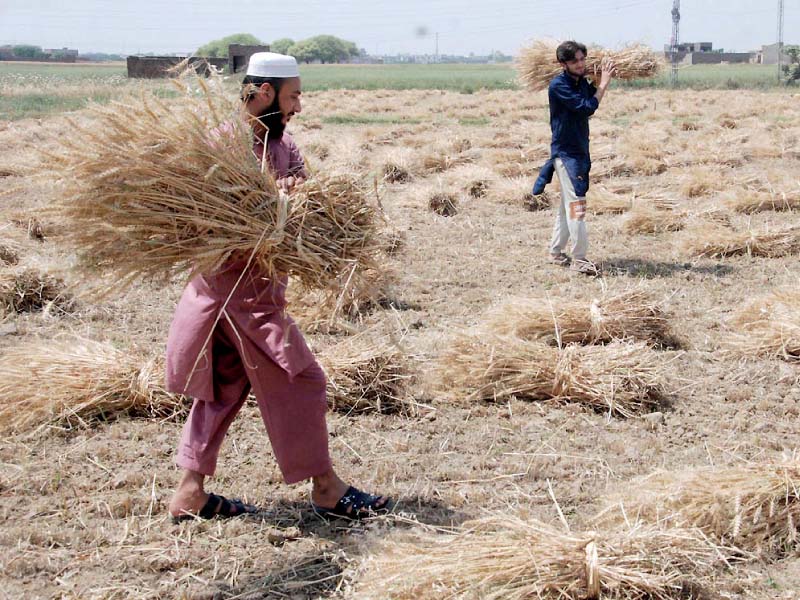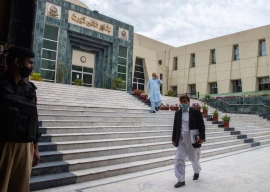
“The crop is not strong this year,” bemoans farmer Chaudhry Muhamad Nawaz, who cultivated wheat in the Banda Nagial village on Dhamial Road.
Farmers to get cash prizes for eradicating warble fly
“Wheat cultivation was delayed in our area owing to a dry spell which has persisted for over three months. The delay in rainfall further weakened the crop,” he said.
Further, he said that farmers could not fully exploit fertilisers owing to the prolonged dry spell. He noted that the dry spell had also affected production in the area where only natural fertilisers such as cow and buffalo manure were being used.
Crops in arid areas are largely dependent on rainfall first in months of September and then in December and January, he said.
However, this year, the area did not receive a drop of rain from September until January. Rains in February were too late to give high yield, the farmer said.
With the harvest season just around the corner, Nawaz noted with dismay that his crop did not have the height or the grains that it had last year.
Commenting on the situation, Rawalpindi Agriculture Department’s Deputy Director Dr Arif Khan said that this year the total area on which wheat crop was being cultivated 297,692 acres. By comparison, last year wheat had been cultivated over an area of 312,000 acres, a fall of nearly five per cent.
The agriculture official said that the fall in the cultivable area was the result of fewer rains and feared that it would have a profound impact on the overall wheat yield of the district.
With the district yielding around 720 kilogrammes of wheat per acre last year, this year Dr Khan was expecting a significantly lesser yield.
“At the time of sowing, it was feared that in many areas the wheat crop would not germinate at all. The crop did grow but did not get favourable weather,” Dr Khan said.
Indian farmers want to resume selling produce to Pakistan
“The farmers, however, could increase their yield by adopting safety measures while harvesting and avoid losses,” he added.
In response to a question, the official said that the area which was being cultivated in the district had gradually shrunk over the years owing to rapid urbanisation.
Till a few years ago, Dr Khan said, wheat used to be cultivated in as many as 120 union councils in the rural areas. This number, he said, had fallen to just 100 this year.
Published in The Express Tribune, April 22nd, 2017.


















COMMENTS
Comments are moderated and generally will be posted if they are on-topic and not abusive.
For more information, please see our Comments FAQ